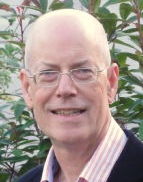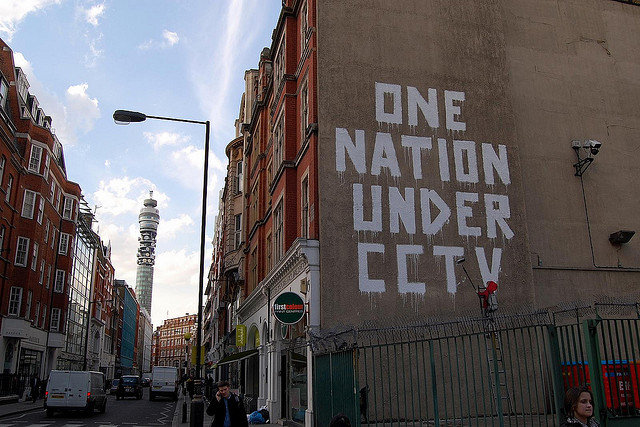In a free society the purpose of mass surveillance should be to protect the way we live
Surveillance is not an end in itself. It has a purpose. In a free society the purpose of surveillance should be to protect the way we live, including our privacy, our liberty, and our democracy; and to frustrate those that want to take these things away. But mass surveillance that infringes on privacy and liberty fails to play this role and consequently undermines the way we live, writes Mark Harrison.
Citizens of Western societies have two things to fear from mass surveillance. One is the encroachment of a police state on public freedoms: our rights of free expression, association, and political and social enterprise. The other thing we should fear is the loss of privacy, opening up our lives up to private abuse by government officials and others acting for them.
Recent revelations associated with Wikileaks and Edward Snowden allow us to re-evaluate the distance from where we are to a real police state. This distance is very considerable. We can tell this by contrasting our current situation with the historical record of communist societies.
That record, which is the subject of my own research, for example on the KGB in Soviet Lithuania, has told us quite a lot about how surveillance works in police states. Three things seem to go into the mix. One hallmark of a police state is the pervasive character of surveillance, including the involvement of a significant proportion of some citizens in watching others. A second is the intentional restriction of citizens’ movements and interactions in order to constrict the content of what has to be watched and listened to fit within the capacity of the surveillance agencies. Third, and arguably most significant, is the use of surveillance to intervene in society so as to intimidate nonconformists, limit the ideas and facts in circulation, and force political and social activism into channels that do not challenge the incumbent regime.
Of these three things, only the first is seen today in most Western societies. That is, Western spy agencies are interested in the metadata of our phone calls and emails, although with legal restrictions on access to their content. CCTV and number plate recognition systems track our movements, although the ease with which we can be identified is limited by law. Surveillance activities employ large numbers of people as professional employees, and the police and security services also make use of informants.
Other conditions of a police state are not met. The vast scale of surveillance activities is to some extent a consequence of the fact that Western governments do not seek to restrict everyone’s channels of communications or movement in order to make us easier to control. They use the results of electronic surveillance to combat terrorism and organised crime but not, as far as we know, to frighten large numbers of ordinary people out of legitimate political and social action.
An advantage of applying the second and third conditions is that they also help us to spot governments that might have more sinister ambitions. Thus, a necessary step towards a police state would be to restrict access to social media and freedom of movement. So North Korea keeps foreign travel to a bare minimum; the Chinese communist party maintains the Great Firewall and enforces a list of banned terms in social media. Still, what happens in North Korea or China is not a surprise. Of much more concern is recent events in Turkey and Russia. This year Turkish prime minister Erdoğan has tried to ban Twitter and Youtube. As recently as 2011, the FSB, Russia’s successor organization to the KGB, called for a ban on Gmail, Hotmail, and Skype; most likely this ambition has only increased since then. Here are objective signals of an intention to protect the incumbent government and repress dissent.
For most Western societies private abuse arising from the loss of privacy is a more immediate threat than public repression. Why should we fear loss of privacy? Our right to privacy stems from the idea that we are citizens, not subjects. Each of us has the first claim to possess our property, which includes our personal data, and no one has the right to invade, confiscate, or share that property arbitrarily. It is sometimes suggested that only guilty people should fear surveillance, but this is wrong. Innocent personal information is no different from legitimate physical property: the fact that you have nothing to hide or be ashamed of does not make it okay to strip away your privacy without due process.
Official attitudes to privacy have changed since 9/11. Before that time privacy was defended much more robustly than it is today. Here’s a newly declassified memorandum that NSA Director Brent Scowcroft wrote to U.S. Secretary of Defence Donald Rumsfeld on 1 September 1976:
The President [Gerald Ford] is concerned about possible damage to the national security and the economy from continuing Soviet intercept of critical non-government communications, including government defense contractors and certain other key institutions in the private sector. The President further recognizes that U. S. citizens and institutions should have a reasonable expectation of privacy from foreign or domestic intercept when using the public telephone system. The President has therefore decided that communication security should be extended to government defense contractors dealing in classified or sensitive information at the earliest possible time [emphasis added].
In other words, when the Cold War was still intense, a Republican president was willing to require costly measures motivated at least partly by a desire to limit citizens’ exposure to surveillance. In the era after 9/11 many limitations have been swept away. More recently, on 7 November 2013, GCHQ chief Sir Iain Lobban told the House of Commons Intelligence and Security Committee exactly what priority he would give to privacy:
I believe a government’s first duty is to protect its people … I think our job is to provide intelligence around security which enables security in a way which safeguards privacy to the maximum extent possible.
In other words, he was saying, privacy is not a priority. Prevention of terrorism comes first, and we can have as much privacy as is left after that has been achieved (whether what remains is a lot or a little). He went on to say other things that would reassure you if you started from a position of trust:
[GCHQ] can only look at the content of communications where there are very specific legal thresholds and requirements which have been met. So that is the reality. We don’t want to delve into innocent e-mails and phonecalls. I feel I have to say this: I don’t employ the type of people who would do. My people are motivated by saving the lives of British forces on the battle field, they are motivated by fighting terrorists/serious criminals, by meeting that foreign intelligence mission as well. If they were asked to snoop, I would not have the workforce. They would leave the building.
Unfortunately, “trust the government” is not where many people are at right now. More enlightened perspectives can be found in surprising quarters. Here’s the contribution of MI5 chief Andrew Parker on the same occasion:
I think fundamentally, the raison d’etre of an organisation like MI5 is to protect the sort of country we live in against threats to it. The sort of country we live in is a free society, a democracy, a country where we do prize our individual liberty and privacy. Those values are extremely important to all of the men and women who work in our Agencies, who are members of the public, who live in communities and don’t want to live in a surveillance society or a North Korea. They want to live in a country like this. Our job is to keep it that way.
In Parker’s view, in other words, the purpose of security is not to protect us physically but to protect “a free society” where “individual liberty and privacy” are prized. It is not security first and privacy after; security that infringes substantially on privacy, in his judgement, is not security.
Interestingly, Parker’s words echo those of another Republican U.S. president, Ronald Reagan, who set out the first “broad purpose” of U.S. national security on 2 September 1986 as, first:
To preserve the political identity, framework, and institutions of the United States as embodied in the Declaration of Independence and the Constitution.
And only second:
To protect the United States – its national territory, citizenry, military forces, and assets abroad – from military, paramilitary, or terrorist attack.
Surveillance is not an end in itself. It has a purpose. The purpose of surveillance is to protect and prevent. Protect what and prevent what? In a police state the purpose of surveillance is to protect the incumbent regime and prevent unauthorized activities that might offer competition to the existing rulers. In a free society the purpose of surveillance should be to protect the way we live, including our privacy, our liberty, and our democracy; and to frustrate those that want to take these things away. Mass surveillance that infringes on privacy and liberty undermines the way we live.
Does mass surveillance even prevent the other things that scare us: military, paramilitary, or terrorist attack? Even that seems doubtful. Whether or not it did once, it probably doesn’t any more, now that the bad guys know we are watching. If so, that is a price that we must now all pay for mass surveillance having gone too far.
—
Note: This article gives the views of the authors, and not the position of Democratic Audit, the British Politics and Policy blog – on which it originally appeared – nor of the London School of Economics. Please read our comments policy before posting. The shortened URL for this post is: https://buff.ly/1l7pFjh
—
 Mark Harrison is Professor of Economics at the University of Warwick. He is a research associate of Warwick’s Centre on Competitive advantage in the Global Economy, the Centre for Russian and East European Studies at the University of Birmingham and the Hoover Institution on War, Revolution, and Peace at Stanford University.
Mark Harrison is Professor of Economics at the University of Warwick. He is a research associate of Warwick’s Centre on Competitive advantage in the Global Economy, the Centre for Russian and East European Studies at the University of Birmingham and the Hoover Institution on War, Revolution, and Peace at Stanford University.






 Democratic Audit's core funding is provided by the Joseph Rowntree Charitable Trust. Additional funding is provided by the London School of Economics.
Democratic Audit's core funding is provided by the Joseph Rowntree Charitable Trust. Additional funding is provided by the London School of Economics.
Surveillance should protect, not undermine the way we live in a free society. https://t.co/B9TVWzAl91
Interesting article @LSEPubAffairs: In free society the purpose of mass surveillance should be to protect way we live https://t.co/IGqJ1MJBOn
In a free society the purpose of mass surveillance should be to protect the way we live https://t.co/dz629md5Aq https://t.co/wFPpQnJSjt
In a free society the purpose of mass surveillance should be to protect the way we live https://t.co/gZQNXDvVzz